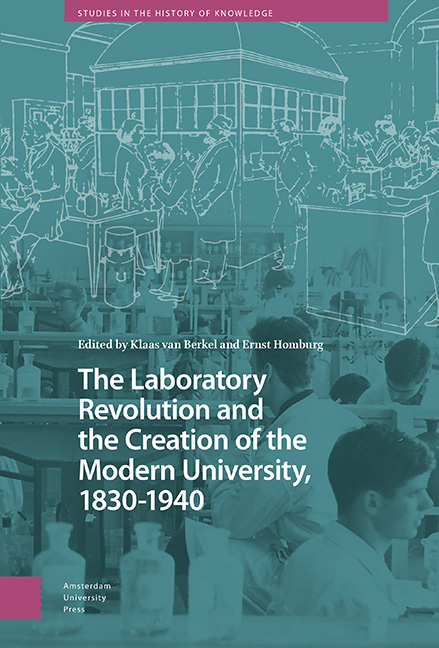3 - The Laboratory Ethos, 1850–1900
Published online by Cambridge University Press: 29 November 2023
Summary
We shall be able to employ in scientific education, not only the trained attention of the student … but the keenness of his eye, the quickness of his ear, the delicacy of his touch, and the adroitness of his fingers.
J.C. Maxwell, 1871Abstract
This essay discusses the new pedagogical regimes and the associated values that accompanied the nineteenth-century rise of the university laboratory. Although these pedagogical practices and the related epistemic virtues differed for different scientific fields, there was a general trend towards a stronger emphasis on discipline, accuracy, and persistence. It is argued that this process helped to shape the emerging scientific disciplines and to create a new scientific persona that embodied these virtues. In the late nineteenth century, diligent, meticulous, disciplined work rather than genius characterized the ideal scientist. These claims are illustrated for the new laboratory sciences of chemistry, physiology, and physics.
Keywords: laboratory, pedagogical regimes, epistemic virtues, scientific persona, discipline formation
Introduction
The nineteenth-century laboratory revolution transformed the university into a new kind of institution that trained the hand as well as the mind. Because laboratories have become such an integral part of modern society, it is all too easy to overlook the radical nature of this transformation. Indeed, the introduction of large-scale laboratory training in the university curriculum implied a major transgression of the time-honoured division between intellectual and manual work that had characterized teaching and learning processes since antiquity. The pioneers of such pedagogic novelties had to fight an uphill battle. When in 1825 the newly appointed professor of chemistry in Giessen, Justus Liebig, discussed his plans for a pharmaceutical teaching laboratory, the senate made clear that such an institute could not be incorporated within the university. The university’s task was to train ‘civil servants, not apothecaries, soap makers, beer-brewers, dyers and vinegar-distillers’. And although the success of Liebig’s laboratory eventually resulted in the absorption of the institute into the university, academic resistance to intensive and systematic hands-on training remained strong.
In 1840 Liebig launched a vigorous attack on what he saw as the deplorable state of chemistry teaching at Prussian universities, none of which had followed the Giessen example.
- Type
- Chapter
- Information
- Publisher: Amsterdam University PressPrint publication year: 2023



